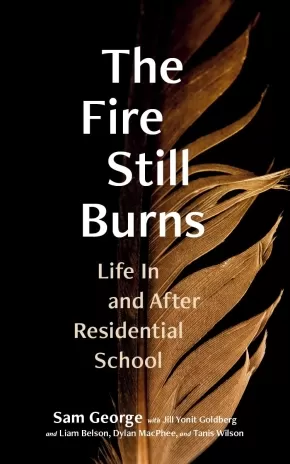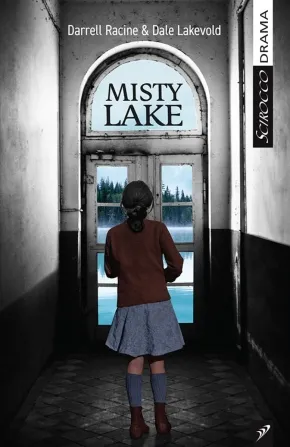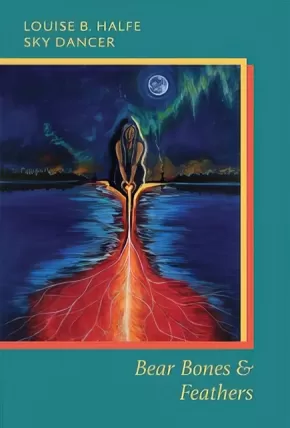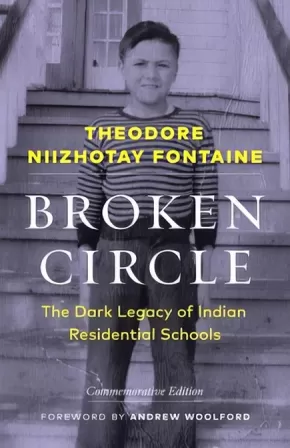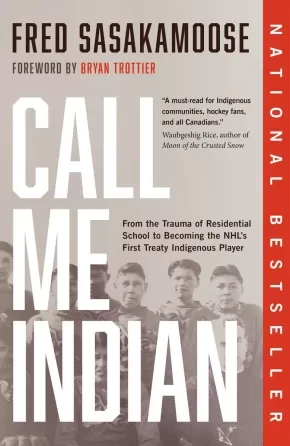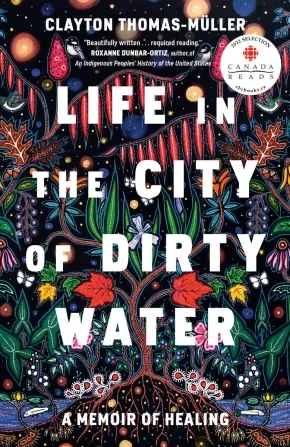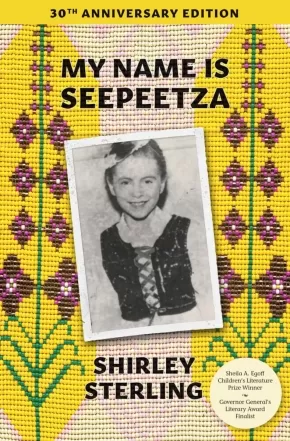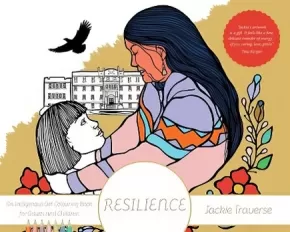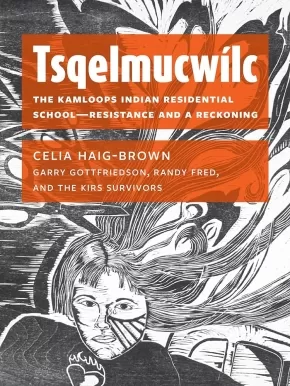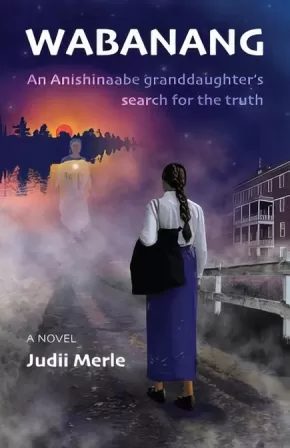
Residential Schools / Reconciliation
31
-
45
of
116 Results;
Sort By
Go To
of 8
To deepen and support your understanding of what the Indian Residential School experience was and its impact on Canada please download this document, They Came For the Children:
Click here: They Came For the Children
Project of Heart” is an inquiry based, hands-on, collaborative, inter-generational, artistic journey of seeking truth about the history of Indigenous people in Canada. Its purpose is to:
Examine the history and legacy of Indian Residential Schools in Canada and to seek the truth about that history, leading to the acknowledgement of the extent of loss to former students, their families and communities
Commemorate the lives of the thousands of Indigenous children who died as a result of the residential school experience.
Call Canadians to action, through social justice endeavors, to change our present and future history collectively
Click here to visit the website: Project Of Heart
Orange Shirt Day: September 30th: Revised Edition
$32.99
Format:
Hardcover
Text Content Territories:
Indigenous Canadian; First Nations; Inuit; Métis;
ISBN / Barcode: 9781778540141
Synopsis:
Synopsis:
Orange Shirt Day, observed annually on September 30th, is also known as the National Day for Truth and Reconciliation. It is an official day to honour Residential School Survivors and their families, and to remember the children who did not come home. What was initially envisioned as a way to keep the conversations going about all aspects of Residential Schools in Williams Lake and the Cariboo Region of British Columbia, Canada, has now expanded into a movement across Turtle Island and beyond. Orange Shirt Day: September 30th aims to create champions who will walk a path of reconciliation and promote the message that 'Every Child Matters'. This award-winning book explores a number of important topics including the historical, generational, and continual impacts of Residential Schools on Indigenous Peoples, the journey of the Orange Shirt Day movement, and how you can effectively participate in the National Day for Truth and Reconciliation. With end of chapter reflection questions and a series of student art submissions, readers are guided to explore how they, and others, view and participate in Residential School reconciliation.
Awards
- 2021 First Nation Communities Read 2021 Winner
Educator Information
Recommended Ages: 10+
Orange Shirt Day was inspired by the story of a survivor named Phyllis Webstad. When Phyllis was 6 years old she went to residential school for the first time wearing a brand new shiny orange shirt. When she arrived at the school her shirt was taken away and never to be seen again. To Phyllis the colour orange was a symbol that she did not matter. Today she has learned to accept the colour and even have fun with it and now the orange shirt has become a symbol of hope and reconciliation. By wearing an orange shirt on Orange Shirt Day, you make a powerful statement that residential schools were wrong and commit to the concept that EVERY CHILD MATTERS.
The Orange Shirt Society is a non-profit organization with its home in Williams Lake, BC where Orange Shirt Day began in 2013. The society has both Indigenous and non-Indigenous board members, and one of the editors of this book, Phyllis Webstad, is Indigenous. Therefore, the Authentic Indigenous Text label has been applied. It is up to readers to determine if this book is authentic for their purposes.
This is the Revised 2023, 2nd Edition
Additional Information
156 pages | 8.23" x 11.06" | Revised, 2nd Edition
The Fire Still Burns: Life In and After Residential School
$21.95
Format:
Paperback
Text Content Territories:
Indigenous Canadian; First Nations; Salish; Coast Salish; Squamish;
Reading Level: N/A
ISBN / Barcode: 9780774880855
Synopsis:
Synopsis:
“My name is Sam George. In spite of everything that happened to me, by the grace of the Creator, I have lived to be an Elder.”
The crimes carried out at St. Paul’s Indian Residential School in North Vancouver scarred untold numbers of Indigenous children and families across generations. Sam George was one of these children. This candid account follows Sam from his idyllic childhood growing up on the Eslhá7an (Mission) reserve to St. Paul’s, where he weathered physical, emotional, and sexual abuse. He spent much of his life navigating the effects of this trauma – prison, addiction, and challenging relationships – until he found the strength to face his past. Now an Elder and educator with the Indian Residential School Survivors Society, this is Sam’s harrowing story, in his own words. An ember of Sam’s spirit always burned within him, and even in the darkest of places he retained his humour and dignity.
The Fire Still Burns is an unflinching look at the horrors of a childhood in the Indian Residential School system and the long-term effects on survivors. It illustrates the healing power of one’s culture and the resilience that allows an individual to rebuild a life and a future.
This frank and powerful personal story of trauma and resilience will bring a greater understanding to all readers – Indigenous and non-Indigenous alike – of residential schools and the impact they had on those who were forced to attend them.
Reviews
"I am glad that Sam George has lent his voice to the many voices of survivors now surfacing from residential "schools". I love the way Sam describes his traditional life before he was forced to go to the school and then later goes back to his culture to overcome the trauma he endured. Sam did time in jail for a crime he committed, but the real crime is that our Indigenous way of life was interfered with, and that created the dysfunction in our communities. This book shows that we had it right all along – Indigenous culture is our saviour."— Bev Sellars, author of They Called Me Number One: Secrets and Survival at an Indian Residential School
"Brutally frank yet disarmingly subtle, sensitive, and funny, The Fire Still Burns by Sam George offers an unflinching look at the human dimensions of Canada’s attempted genocide of Indigenous Peoples through residential schooling." — Sam McKegney, author of Carrying the Burden of Peace: Reimagining Indigenous Masculinities through Story
Educator Information
Table of Contents
Preface / Sam George
Acknowledgments
A Note on the Text
1 Your Name Is T'seatsultux
2 In Them Days
3 Our Lives Signed Away
4 The Strap
5 A Girl Named Pearl, a Boy Named Charlie
6 Runaway
7 I Tried to Be Invisible
8 Finding Ways to Feel Good
9 On Our Own
10 Oakalla
11 Haney Correctional
12 Longshoreman
13 Misery Loves Company
14 Drowning
15 Tsow-Tun Le Lum
16 I’m Still Here
Afterword: On Co-Writing Sam George’s Memoir / Jill Yonit Goldberg
Reader’s Guide
About the Authors
Additional Information
152 pages | 5.00" x 8.00" | Paperback
The Misty Lake
$17.95
Format:
Paperback
Text Content Territories:
Indigenous Canadian; First Nations; Dene; Métis;
Reading Level: N/A
ISBN / Barcode: 9781990738302
Synopsis:
Synopsis:
Misty Lake tells the story of a young Metis journalist from Winnipeg who travels to a Dene reserve in Northern Manitoba to conduct an interview with a former residential school student. What Mary imparts in her interview will change Patty's life profoundly, allowing the journalist to make the connections to her own troubled life in the city. Patty knows that her Metis grandmother went to residential school when she was a girl. But Patty hasn't understood until now that she's inherited the traumatic legacy of residential school that was passed down to her mother from her grandmother. With this new understanding, Patty embarks on a healing journey. It will take her to the Dene fishing camp at Misty Lake, a place of healing, where, with Mary, she will learn that healing begins when you can talk about your life.
Additional Information
80 pages | 5.50" x 8.50" | Paperback
The Scarf and the Butterfly: A Graphic Memoir of Hope and Healing
$24.95
Artists:
Format:
Hardcover
Text Content Territories:
Indigenous Canadian; Inuit;
ISBN / Barcode: 9781774506523
Synopsis:
Synopsis:
“’There’s an opening above me, but it’s far, and I have to stack up rocks to jump up, and it’s almost impossible to get out.’ That’s when I realized that I was stripped of my identity, and there was nothing of my culture left in me. It was like I wasn’t in my body anymore. It was bare and desolate and empty and cold, lifeless in my body. Where was I? Where had I gone?”
In this visceral graphic memoir, Monica Ittusardjuat brings readers with her from residential school classrooms to government apologies on her journey to rediscovering what it means to be Inuk. Born prematurely in an iglu on Baffin Island, Monica attended three residential schools over eleven years. She details her resulting struggles with addiction, mental health, and domestic violence, which haunted her into adulthood.
Equal parts heartbreaking and hopeful, Monica’s memoir is a testimony to the lasting impacts of residential schools and one woman’s fight to reclaim what she lost.
The Scarf and the Butterfly is a stunning new addition to Qinuisaarniq ("resiliency"), a collection of books created to educate readers about the history and impacts of residential schools.
Educator & Series Information
Recommended for ages 14 to 18.
This book exposes readers to the experience and perspective of an Inuk residential school survivor.
This book is part of the Qinuisaarniq program. Qinuisaarniq (“resiliency”) is a program created to educate Nunavummiut and all Canadians about the history and impacts of residential schools, policies of assimilation, and other colonial acts that have affected the Canadian Arctic.
Each resource has been carefully written and reviewed to include level-appropriate opportunities for students to learn about colonial acts and policies that have affected Inuit. These acts and policies created long-lasting impacts on Inuit individuals and communities, which are still being felt today.
Additional Information
68 pages | 7.00" x 10.00" | Hardcover
Bear Bones and Feathers
$20.00
Format:
Paperback
Text Content Territories:
Indigenous Canadian; First Nations; Cree (Nehiyawak); Plains Cree; Saddle Lake Cree Nation ;
Reading Level: N/A
ISBN / Barcode: 9781771315784
Synopsis:
Synopsis:
In this new edition of her powerful debut, Plains Cree writer and National Poet Laureate Louise B. Halfe - Sky Dancer reckons with personal history within cultural genocide.
Employing Indigenous spirituality, black comedy, and the memories of her own childhood as healing arts, celebrated poet Louise B. Halfe - Sky Dancer finds an irrepressible source of strength and dignity in her people. Bear Bones and Feathers offers moving portraits of Halfe's grandmother (a medicine woman whose life straddled old and new worlds), her parents (both trapped in a cycle of jealousy and abuse), and the people whose pain she witnessed on the reserve and at residential school.
Originally published by Coteau Books in 1994, Bear Bones and Feathers won the Milton Acorn People's Poet Award, and was a finalist for the Spirit of Saskatchewan Award, the Pat Lowther Award, and the Gerald Lampert Award.
Reviews
"With gentleness, old woman's humour, and a good red willow switch, Louise chases out the shadowy images that haunt our lives. She makes good medicine, she sings a beautiful song."— Maria Campbell, author of Halfbreed
Additional Information
144 pages | 5.75" x 8.50" | Paperback
Broken Circle: The Dark Legacy of Indian Residential Schools-Commemorative Edition - 2nd Edition
$24.95
Format:
Paperback
Text Content Territories:
Indigenous Canadian; First Nations; Anishinaabeg; Sagkeeng;
Reading Level: N/A
ISBN / Barcode: 9781772034158
Synopsis:
Synopsis:
A new commemorative edition of Theodore Fontaine's powerful, groundbreaking memoir of survival and healing after years of residential school abuse.
Originally published in 2010, Broken Circle: The Dark Legacy of Indian Residential Schools chronicles the impact of Theodore Fontaine’s harrowing experiences at Fort Alexander and Assiniboia Indian Residential Schools, including psychological, emotional, and sexual abuse; disconnection from his language and culture; and the loss of his family and community. Told as remembrances infused with insights gained through his long healing process, Fontaine goes beyond the details of the abuse that he suffered to relate a unique understanding of why most residential school survivors have post-traumatic stress disorders and why succeeding generations of Indigenous children suffer from this dark chapter in history. With a new foreword by Andrew Woolford, professor of sociology and criminology at the University of Manitoba, this commemorative edition will continue to serve as a powerful testament to survival, self-discovery, and healing.
Reviews
"Broken Circle is a life story of Mr. Fontaine and he said it like it was; 'his personal story affirms the tragedy that occurred during this era and the impacts it has on our Indigenous people today'. Mr. Fontaine's humbleness and care for his people was remarkable and no words will ever express what he meant to his people on Turtle Island." —Chief Derrick Henderson, Sagkeeng First Nation
“Theodore Fontaine has written a testimony that should be mandatory reading for everyone out there who has ever wondered, 'Why can’t Aboriginal people just get over Residential Schools?' Mr. Fontaine’s life story is filled with astonishing and brutal chapters, but, through it all, time, healing, crying, writing, friends and family, and love—sweet love—have all graced their way into the man, father, son, brother, husband, and child of wonder Theodore has always deserved to be. What a humbling work to read. I’m grateful he wrote it and had the courage to share it. Mahsi cho." —Richard Van Camp, Tłįchǫ author of The Lesser Blessed and Moccasin Square Gardens
Additional Information
224 pages | 5.50" x 8.50" | 2nd Edition | Paperback
Call Me Indian: From the Trauma of Residential School to Becoming the NHL's First Treaty Indigenous Player
$21.00
Format:
Paperback
Text Content Territories:
Indigenous Canadian; First Nations; Cree (Nehiyawak); Plains Cree; Ahtahkakoop Cree Nation;
Reading Level: N/A
ISBN / Barcode: 9780735240032
Synopsis:
Synopsis:
Trailblazer. Residential school Survivor. First Treaty Indigenous player in the NHL. All of these descriptions are true--but none of them tell the whole story.
Fred Sasakamoose, torn from his home at the age of seven, endured the horrors of residential school for a decade before becoming one of 120 players in the most elite hockey league in the world. He has been heralded as the first Indigenous player with Treaty status in the NHL, making his official debut as a 1954 Chicago Black Hawks player on Hockey Night in Canada and teaching Foster Hewitt how to pronounce his name. Sasakamoose played against such legends as Gordie Howe, Jean Beliveau, and Maurice Richard. After twelve games, he returned home.
When people tell Sasakamoose's story, this is usually where they end it. They say he left the NHL to return to the family and culture that the Canadian government had ripped away from him. That returning to his family and home was more important to him than an NHL career. But there was much more to his decision than that. Understanding Sasakamoose's choice means acknowledging the dislocation and treatment of generations of Indigenous peoples. It means considering how a man who spent his childhood as a ward of the government would hear those supposedly golden words: "You are Black Hawks property."
Sasakamoose's story was far from over once his NHL days concluded. He continued to play for another decade in leagues around Western Canada. He became a band councillor, served as Chief, and established athletic programs for kids. He paved a way for youth to find solace and meaning in sports for generations to come. Yet, threaded through these impressive accomplishments were periods of heartbreak and unimaginable tragedy--as well moments of passion and great joy.
This isn't just a hockey story; Sasakamoose's groundbreaking memoir sheds piercing light on Canadian history and Indigenous politics, and follows this extraordinary man's journey to reclaim pride in an identity and a heritage that had previously been used against him.
Reviews
“Fred Sasakamoose played in the NHL before First Nations people had the right to vote in Canada. This page turner will have you cheering for “Fast Freddy” as he faces off against huge challenges both on and off the ice—a great gift to every proud hockey fan, Canadian, and Indigenous person.”—Wab Kinew, Leader of the Manitoba NDP and author of The Reason You Walk
“Call Me Indian needs to be in every library and on every school curriculum in Canada. Fred Sasakamoose’s story is gripping and powerfully told—a story of triumph and tragedy, of great success and the perils of excess. There is laughter and tears here aplenty, but also inspiration. Characters as large as Gordie Howe and Bobby Hull are easily matched by the likes of Moosum, Freddy’s grandfather; Father Roussel, the only good to be found in residential school; George Vogan, who always believed in Fred—and Loretta, who loved him, gave him family, and ultimately saved him.”—Roy MacGregor, bestselling author of Chief: The Fearless Vision of Billy Diamond and Canadians: Portrait of a Country
Additional Information
288 pages | 5.20" x 7.94" | 8 pp 4/c photo insert
Meg Masters assisted Fred in writing his memoir. She is a Toronto-based writer and editor who has worked with many bestselling Canadian authors.
First Nations 101: Tons of Stuff You Need to Know - 2nd Edition
$23.00
Format:
Paperback
Text Content Territories:
Indigenous Canadian; First Nations;
ISBN / Barcode: 978-0-9869640-1-5
Synopsis:
Synopsis:
Updated and expanded 2nd edition of the national best seller!
First Nations 101 provides a broad overview of the day-to-day lives of Indigenous people, traditional Indigenous communities, colonial interventions used in an attempt to assimilate Indigenous people into mainstream society, the impacts those interventions had on Indigenous families and communities, and how Indigenous people are working towards holistic health and wellness today.
This 2nd edition has over 75 chapters, including new ones on rematriation, water for life, governance ‘options’, Indigenous feminisms, decolonization, (mis)appropriation, Indigenous Knowledge, and how to become a great ally.
Educator Information
Author Lynda Gray’s accessible writing style makes First Nations 101 the perfect primer for all to read. She notes that although governments may encourage and fund reconciliation activities, true reconciliation can only happen through the ongoing commitment and consistent actions of individuals, groups, organizations, governments, and businesses.
$1 from each book sold will be donated to the Ts’msyen Revolution Fund which Lynda Gray and her children, Dr. Robin Gray and artist Phil Gray, started in 2022. The Fund will help support Ts’msyen language and culture revitalization in laxyuubm Ts’msyen (Ts’msyen territory).
Lynda Gray is member of the Ts’msyen Nation from Lax Kw’alaams on the Northwest Coast of B.C. The book’s cover art was created by her son Phil Gray and features a 'neełx (killerwhale) to represent the author and her children’s clan (Gisbutwada).
The 2nd edition has over 75 chapters, with 16 new ones including rematriation, what is reconciliation, traditional economies, water for life, Indigenous feminisms, (mis)appropriation, economic development, Indigenous Knowledge, how to become a great ally, and more.
Additional Information
336 Pages | Updated and expanded 2nd edition
Life in the City of Dirty Water: A Memoir of Healing (PB)
$19.95
Format:
Paperback
Text Content Territories:
Indigenous Canadian; First Nations; Cree (Nehiyawak); Swampy Cree ; Mathias Colomb First Nation;
ISBN / Barcode: 9780735240087
Synopsis:
Synopsis:
An electrifying memoir that braids together the urgent issues of Indigenous rights and environmental policy, from a nationally and internationally recognized activist and survivor.
There have been many Clayton Thomas-Mullers: The child who played with toy planes as an escape from domestic and sexual abuse, enduring the intergenerational trauma of Canada's residential school system; the angry youngster who defended himself with fists and sharp wit against racism and violence, at school and on the streets of Winnipeg and small-town British Columbia; the tough teenager who, at 17, managed a drug house run by members of his family, and slipped in and out of juvie, operating in a world of violence and pain.
But behind them all, there was another Clayton: the one who remained immersed in Cree spirituality, and who embraced the rituals and ways of thinking vital to his heritage; the one who reconnected with the land during summer visits to his great-grandparents' trapline in his home territory of Pukatawagan in northern Manitoba.
And it's this version of Clayton that ultimately triumphed, finding healing by directly facing the trauma that he shares with Indigenous peoples around the world. Now a leading organizer and activist on the frontlines of environmental resistance, Clayton brings his warrior spirit to the fight against the ongoing assault on Indigenous peoples' lands by Big Oil.
Tying together personal stories of survival that bring the realities of the First Nations of this land into sharp focus, and lessons learned from a career as a frontline activist committed to addressing environmental injustice at a global scale, Thomas-Muller offers a narrative and vision of healing and responsibility.
Reviews
“Clayton Thomas-Müller—Cree poet and environmental warrior dedicated to decolonization—has crafted an awesome, lyrical memoir that captures the experiences of urban Indigenous youth facing poverty, drugs, alcohol, domestic violence, and juvenile detention. Most, like Clayton, inherited the intergenerational trauma of residential schools. Clayton found a way to escape trauma and poverty in order to fight for his people. This beautifully written book is required reading for everyone who cares about justice for the survivors of genocide who continue to survive in colonized conditions. It offers a path to liberation that may also be the way to saving the earth and humanity itself.” — Roxanne Dunbar-Ortiz, author of An Indigenous Peoples’ History of the United States
“This book is an adventure story in every way. A life of drug dealers and crackhouses and guns; leaving that behind for a remarkable time of spiritual and personal growth; and there’s the ongoing adventure of working desperately to protect the planet and its sacred places. Clayton Thomas-Müller relates these adventures in ways that will help everyone through unfamiliar terrain—he’s a trustworthy guide and an authentic storyteller. In a moment when Indigenous people around the world are coming to the very fore of the most crucial fights, this volume will broaden your understanding in powerful ways. And you won’t forget its scenes any time soon.”—Bill McKibben, co-founder of 350.org and author of Earth and Oil and Honey
Additional Information
240 pages | 5.19" x 7.97" | Paperback
My Name is Seepeetza: 30th Anniversary Edition
$12.99
Format:
Paperback
Text Content Territories:
Indigenous Canadian; First Nations; Salish; Interior Salish; Nlaka'pamux (Thompson);
ISBN / Barcode: 9781773068565
Synopsis:
Synopsis:
An honest look at life in an Indian residential school in the 1950s, and how one indomitable young spirit survived it — 30th anniversary edition.
Seepeetza loves living on Joyaska Ranch with her family. But when she is six years old, she is driven to the town of Kalamak, in the interior of British Columbia. Seepeetza will spend the next several years of her life at an Indian residential school. The nuns call her Martha and cut her hair. Worst of all, she is forbidden to “talk Indian,” even with her sisters and cousins.
Still, Seepeetza looks for bright spots — the cookie she receives at Halloween, the dance practices. Most of all, there are her memories of holidays back at the ranch — camping trips, horseback riding, picking berries and cleaning fish with her mother, aunt and grandmother. Always, thoughts of home make school life bearable.
Based on her own experiences at the Kamloops Indian Residential School, this powerful novel by Nlaka’pamux author Shirley Sterling is a moving account of one of the most blatant expressions of racism in the history of Canada.
Includes a new afterword by acclaimed Cree author Tomson Highway of the Barren Lands First Nation in northern Manitoba.
Educator Information
Recommended for ages 9 to 12.
Key Text Features: afterword, dialogue, journal entries, maps.
Correlates to the Common Core State Standards in English Language Arts:
CCSS.ELA-LITERACY.RL.4.2
Determine a theme of a story, drama, or poem from details in the text; summarize the text.
CCSS.ELA-LITERACY.RL.5.1
Quote accurately from a text when explaining what the text says explicitly and when drawing inferences from the text.
CCSS.ELA-LITERACY.RL.6.6
Explain how an author develops the point of view of the narrator or speaker in a text.
Includes a new afterword by acclaimed Cree author Tomson Highway of the Barren Lands First Nation in northern Manitoba.
Additional Information
128 pages | 5.10" x 7.50"
Namwayut - We Are All One: A Pathway to Reconciliation
$29.95
Format:
Hardcover
ISBN / Barcode: 9781774580059
Synopsis:
Synopsis:
We all share a common humanity. No matter how long or difficult the path ahead, we are all one.
Reconciliation belongs to everyone. In this profound book, Chief Robert Joseph, globally recognized peacebuilder and Hereditary Chief of the Gwawaenuk People, traces his journey from his childhood surviving residential school to his present-day role as a leader who inspires individual hope, collective change, and global transformation.
Before we get to know where we are going, we need to know where we came from. Reconciliation represents a long way forward, but it is a pathway toward our higher humanity, our highest selves, and an understanding that everybody matters. In Namwayut, Chief Joseph teaches us to transform our relationships with ourselves and each other. As we learn about, honour, and respect the truth of the stories we tell, we can also discover how to dismantle the walls of discrimination, hatred, and racism in our society.
Chief Joseph is known as one of the leading voices on peacebuilding in our time, and his dedication to reconciliation has been recognized with multiple honorary degrees and awards. As one of the remaining first-language speakers of Kwak'wala, his wisdom is grounded in Indigenous ways of knowing while making space for something bigger and better for all of us.
Additional Information
200 pages | 5.25" x 8.00" | Hardcover
Resilience: Honouring the Children of Residential Schools
$24.00
Artists:
Format:
Paperback
Text Content Territories:
Indigenous Canadian;
Reading Level: N/A
ISBN / Barcode: 9781773635590
Synopsis:
Synopsis:
Resilience is the third colouring book made up of works by Anishnaabe artist Jackie Traverse. As with her previous highly successful colouring books, Sacred Feminine and IKWE, this new book contains both drawings and paintings by Jackie. Resilience honours the Indigenous Peoples who were colonized by and endured the violence of Canada’s child stealing systems — residential schools, the Sixties Scoop and child “welfare.” Some Indigenous people survived those systems; tragically, some did not. Jackie and her art pay tribute to and celebrate the resilience of Indigenous Peoples as they rebuild their communities and lives. Grassroots grandmother Geraldine (Gramma) Shingoose provides a foreword.
Reviews
“It is with great pride that I write this piece for Jackie’s next book. Her colouring books have had great meaning in my role as a Kokum to my grandgirl as we have been able to do this beautiful work together. I grew up learning beadwork and sewing from my grandmothers, who did not speak English, who did not grow up in Residential Schools, and they gave the best of themselves to me. This is what Jackie does for everyone who finds her work. She gives the best of herself, her culture, her gifts. Jackie is a fierce protector of culture and a generous, grand teacher. Her works are gifted to us through her books, her paintings in exhibits, her gifts of skateboards to young people, her live painting auctions for fundraising for the MMIWG2S and education scholarships for Indigenous youth, and in her amazing pieces for the public such as the Coca-Cola Olympics campaign and her project at the Red River College for the Innovation Centre. I have gifted her artwork to friends and family as she captures traditional teachings in her works and the gifting feels like a fine, delicate transfer of energy — of joy, caring, love, pride. I hope that is true for all who find this book by Jackie Traverse. The gift. I say Kichi miigwetch, a big thank you to Jackie Traverse for sharing with all of us.”— Tina Keeper
“Jackie Traverse is a beautiful Indigenous woman artist, leader and friend. Through her advocacy, activism and art, she inspires, supports and contributes so much to so many. I, among countless others, value and appreciate Jackie’s continued contributions. I look forward to copies of this book joining her earlier works, as well as the many pieces of art that I have the privilege of displaying in my office and home.”— Kim Pate
Additional Information
64 pages | 10.00" x 8.00" | Paperback Colouring Book
This House Is Not a Home
$24.00
Format:
Paperback
Text Content Territories:
Indigenous Canadian; First Nations; Dene;
Reading Level: N/A
ISBN / Barcode: 9781773635620
Synopsis:
Synopsis:
After a hunting trip one fall, a family in the far reaches of so-called Canada’s north return to nothing but an empty space where their home once stood. Finding themselves suddenly homeless, they have no choice but to assimilate into settler-colonial society in a mining town that has encroached on their freedom.
An intergenerational coming-of-age novel, This House Is Not a Home follows Kǫ̀, a Dene man who grew up entirely on the land before being taken to residential school. When he finally returns home, he struggles to connect with his family: his younger brother whom he has never met, his mother because he has lost his language, and an absent father whose disappearance he is too afraid to question.
The third book from acclaimed Dene, Cree and Metis writer Katłįà, This House Is Not a Home is a fictional story based on true events. Visceral and embodied, heartbreaking and spirited, this book presents a clear trajectory of how settlers dispossessed Indigenous Peoples of their land — and how Indigenous communities, with dignity and resilience, continue to live and honour their culture, values, inherent knowledge systems, and Indigenous rights towards re-establishing sovereignty. Fierce and unflinching, this story is a call for land back.
Reviews
"Absolutely exquisite. Told with such love and gentle ferocity, I’m convinced This House Is Not A Home will never leave those who read it. I am in awe of what I’ve witnessed here. Mahsi cho, Katlia. Bravo! " — Richard Van Camp author of The Lesser Blessed and Moccasin Square Gardens
Additional Information
192 pages | 5.50" x 8.50" | Paperback
Tsqelmucwilc: The Kamloops Indian Residential School - Resistance and a Reckoning
$22.95
Format:
Paperback
Text Content Territories:
Indigenous Canadian; First Nations; Nuu-chah-nulth (Nootka); Tseshaht First Nation; Salish; Interior Salish; Secwepemc (Shuswap);
Reading Level: N/A
ISBN / Barcode: 9781551529059
Synopsis:
Synopsis:
In May 2021, the world was shocked by news of the detection of 215 unmarked graves on the grounds of the former Kamloops Indian Residential School (KIRS) in British Columbia, Canada. Ground-penetrating radar confirmed the deaths of students as young as three in the infamous residential school system, which systematically removed children from their families and brought them to the schools. At these Christian-run, government-supported institutions, they were subjected to physical, mental, and sexual abuse while their Indigenous languages and traditions were stifled and denounced. The egregious abuses suffered in residential schools across the continent caused - as the 2021 discoveries confirmed - death for too many and a multigenerational legacy of trauma for those who survived.
"Tsquelmucwilc" (pronounced cha-CAL-mux-weel) is a Secwepemc phrase loosely translated as "We return to being human again." Tsqelmucwilc is the story of those who survived the Kamloops Indian Residential School, based on the 1988 book Resistance and Renewal, a groundbreaking history of the school - and the first book on residential schools ever published in Canada. Tsqelmucwilc includes the original text as well as new material by the original book's author, Celia Haig-Brown; essays by Secwepemc poet and KIRS survivor Garry Gottfriedson and Nuu-chah-nulth elder and residential school survivor Randy Fred; and first-hand reminiscences by other survivors of KIRS, as well as their children, on their experience and the impact of their trauma throughout their lives.
Read both within and outside the context of the grim 2021 discoveries, Tsqelmucwilc is a tragic story in the history of Indigenous peoples of the indignities suffered at the hands of their colonizers, but it is equally a remarkable tale of Indigenous survival, resilience, and courage.
Additional Information
240 pages | 6.00" x 8.00" | B&W photos throughout | Paperback
Wabanang, Daughter of the Stars: An Anishinaabe Novel
$17.95
Format:
Paperback
Text Content Territories:
Indigenous Canadian; First Nations; Anishinaabeg; Algonquin;
ISBN / Barcode: 9781990326066
Synopsis:
Synopsis:
In the winter of 1876, a baby is born to Anishinaabe parents along the trapline in the northern Ontario wilderness. Seventy-five years later, her granddaughter is seeking information about her grandmother's life, why her family is so fractured, and what part the residential school played in the dysfunction and estrangement which has shaped her own life. To that end, twenty—two-year-old Janey enlists the help of a hypnotist who regresses Janey back to a time when Indigenous people in Canada lived off the land, supported each other and raised their children without outside interference. But when settlers began to arrive and residential schools were established, all that changed.
In her hypnotic state, Janey is able to follow her grandmother, Wabanang (Morning Star) as a child, as a residential school student and as a medicine woman for her people. But the seeds of distrust and fear sown along the way are destroying her family. Estranged from her mother and living with her only relative, Janey must find her own way through the smoke of confusion to discover who she is.
Although this is a work of fiction. The author has drawn on her own family's history, ceremonies and visions from her own life, stories shared with her by respected elders, as well as many years of researching her own and other families.
Additional Information
232 pages | 5.51" x 8.46" | Paperback
Sort By
Go To
of 8




